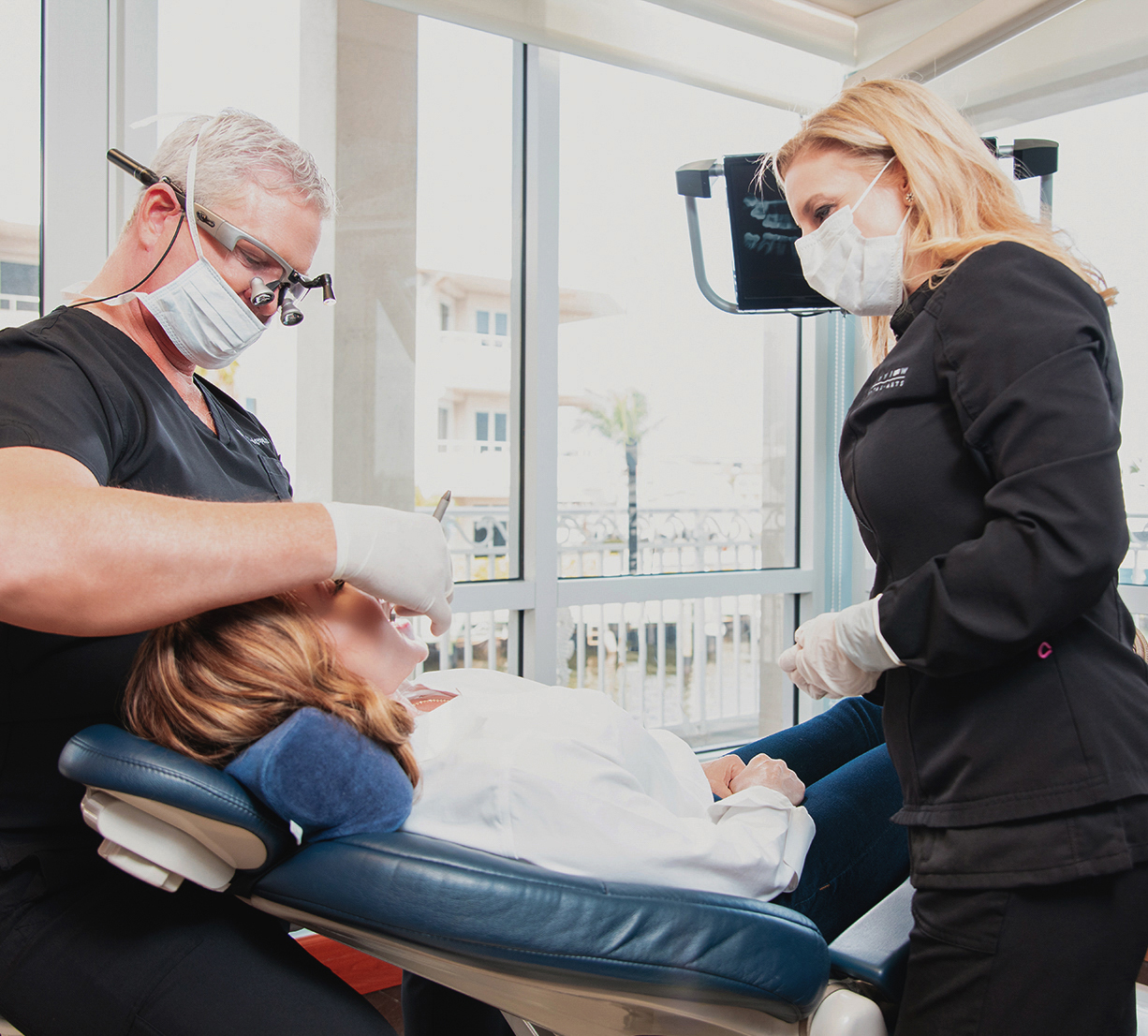Dental extractions and bone grafting are two critical components in modern dentistry that help preserve or prepare your oral health for further restorative procedures. When teeth are beyond repair or affect the surrounding oral structures, removal may become necessary to maintain the overall health of your mouth. Following an extraction, bone grafting becomes an integral process to maintain the bone structure, which is essential for future dental restorations such as implants.
Revitalize Your Smile and Preserve Your Oral Health
At BayView Dental Arts, our commitment to incorporating the latest technological advancements ensures you receive top-notch care. Dr. Kurtis P. Hussey and Dr. Jose M. Horak are your partners in achieving optimal oral health. Equipped with a deep understanding of restorative and implant dentistry, they focus on delivering tailored treatments designed to support the integrity of your jawbone and provide a solid foundation for any necessary prosthetic work.
What Are Dental Extractions?
Dental extractions are essential dentistry procedures to remove significantly damaged or diseased teeth. Understanding the oral structure and determining the right type of extraction for your condition is critical for the best outcomes.

Anatomy and Physiology of the Oral Cavity
The oral cavity comprises various structures, including teeth, gums, jawbones, and connective tissue. Teeth are anchored into the jawbone by roots and surrounded by soft tissue, known as the periodontal ligament, which supports the tooth's structural integrity. Familiarizing yourself with this anatomy is crucial to understanding how extractions affect oral health.
Types of Dental Extractions
There are two main types of extractions:
- Simple Extraction: This is performed on a tooth that can be seen in the mouth. General dentists typically use instruments to elevate and grasp the tooth, requiring minimal bone removal.
- Surgical Extraction: Necessary for teeth that cannot be easily accessed. This may be because they have not erupted through the gum or they have broken under the gum line. Oral surgeons usually perform these and may require the removal of bone and cutting of the gum.
Assessing the Need for Extraction
Your dentist will assess several factors before recommending an extraction, including the following:
- Extent of Damage: Teeth that cannot be restored with a filling or crown may need extraction.
- Risk of Infection: Teeth with a high risk of infection or that contribute to infection might need to be removed.
- Orthodontic Reasons: Some teeth may be extracted to create space for proper alignment.
Post-Operative Care
Proper post-operative care is vital to a speedy recovery and optimal healing after dental extractions and bone grafting. Follow these specific instructions to minimize complications and enhance your healing process.
Immediate Aftercare Instructions
Bleeding Management:
- Day of Surgery: Bite on gauze for 30-60 minutes immediately after the procedure.
- If Bleeding Continues: Replace with new gauze and bite firmly for another 30 minutes.
Pain Control:
- Medication: Take prescribed pain medications as directed by your dentist or surgeon.
- Cold Compress: Apply an ice pack on the cheek in 15-minute intervals for the first 24 hours.
Swelling Management:
- First 24-48 Hours: Use ice packs to reduce swelling.
- 48 Hours After Surgery: Switch to warm compresses to aid in diminishing swelling.
Diet:
- First Day: Consume only soft foods and liquids.
- Avoid the Following: Hot liquids, straws, and spicy or crunchy foods that could irritate the surgery site.
Oral Hygiene:
- No Rinsing: Avoid rinsing the mouth for at least 24 hours after surgery.
- Gentle Rinsing: After 24 hours, rinse gently with saltwater (1/2 teaspoon salt in a cup of warm water) every 2-3 hours.
Long-Term Recovery and Healing
Activity Restrictions:
- Rest: Limit physical activity for the first few days post-surgery.
- Avoid Strenuous Activity: This can include heavy lifting or vigorous exercise for at least two weeks.
Oral Care:
- Brushing: Resume routine brushing after 24 hours, but avoid the surgical sites initially.
- Flossing: Can resume after a few days, but be gentle near the treated areas.
Follow-Up Appointments:
- Schedule Regular Visits: Attend all follow-up appointments to ensure proper healing.
- Monitor Progress: Report any unusual pain, swelling, or symptoms to your dentist/surgeon.
Why Choose Bayview Dental Arts?
At Bayview Dental Arts, your dental health is the priority. When it comes to dental extractions and bone grafting, Drs. Hussey and Horak offer leading expertise in a state-of-the-art setting. This duo of dental professionals provides personalized care tailored to your unique needs.
With years in practice, both Drs. Hussy and Horak deeply understand dental procedures, ensuring you receive top-tier treatment. Using cutting-edge equipment, Bayview Dental Arts offers efficient, effective therapies that emphasize comfort. From diagnosis to aftercare, you are guided every step of the way with thorough information and compassionate support.
Choosing Bayview Dental Arts means opting for a practice where your results are crafted to promote health and confidence. When you require dental extractions and bone grafting, rest assured that with Drs. Hussey and Horak, your smile is in highly capable hands. Contact us today to schedule your consultation!
All Rights Reserved. Web Design & Internet Marketing by Studio III

